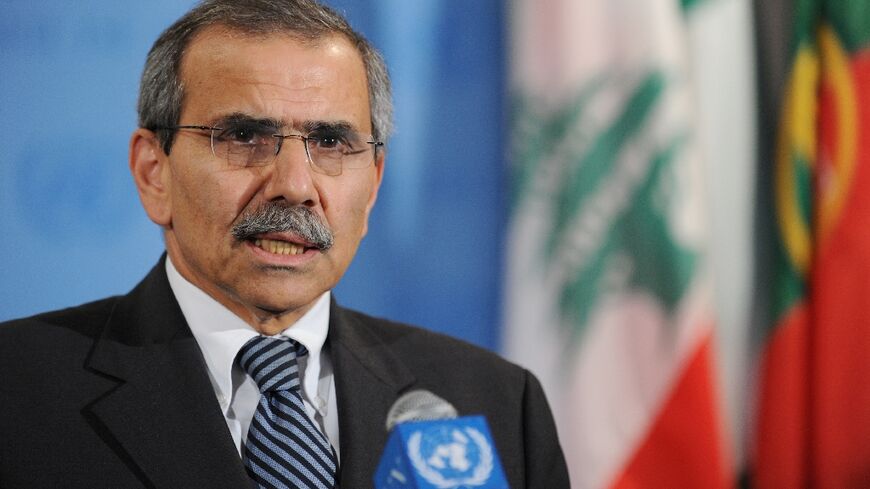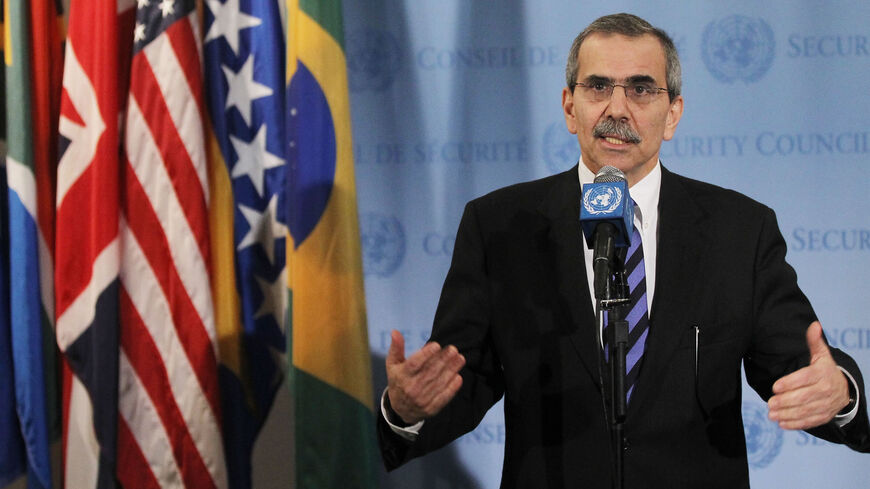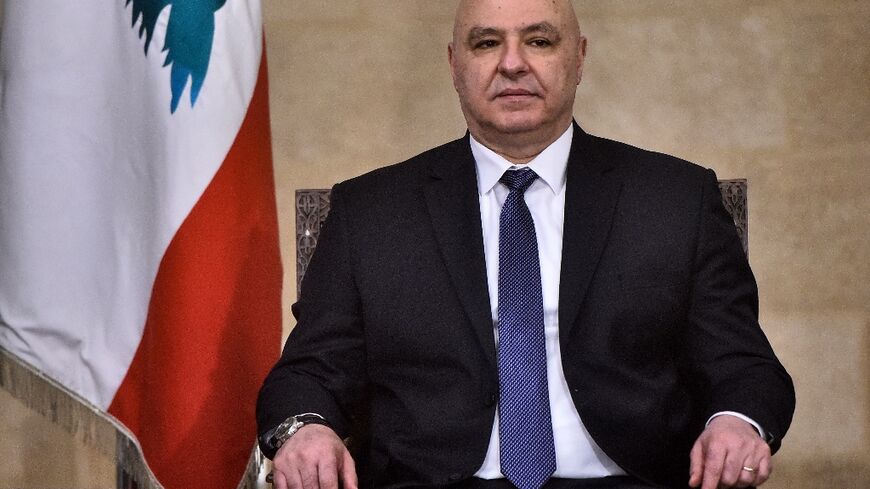Lebanon's president names ICJ judge Nawaf Salam prime minister

Lebanese President Joseph Aoun on Monday picked international jurist Nawaf Salam to form a government to pull the war-scarred country out of economic crisis.
A majority of Lebanese lawmakers endorsed Salam, the presiding judge at the International Court of Justice in The Hague, after two years of a caretaker government.
"The president of the republic has called on Judge Nawaf Salam to task him with forming a government," the presidency said.
Salam was abroad but would return to Lebanon on Tuesday, it said.
Aoun, whose election last week ended a two-year vacancy for the post, had held consultations with lawmakers earlier in the day ahead of announcing his selection.
As of Monday afternoon, 84 members of parliament had told Aoun they backed Salam, according to a tally by Lebanese media, with nine endorsing interim prime minister Najib Mikati to stay in the position.
Thirty-five refused to back either contender.
With the prime minister named by the president, the eastern Mediterranean country had been run by a caretaker government for more than two years amid a crushing economic crisis.
Aoun's election last week was made possible in part by the weakening of Iran-backed militant group Hezbollah in a war with Israel last year.
Speaking to the press on Monday evening, Aoun said he hoped forming a government would be "smooth and as quick as possible".
- 'Purely Lebanese' nomination -
Firas Hamdan, one of around a dozen independent lawmakers elected after mass protests against the ruling class in 2019, said Nawaf's nomination was a "purely Lebanese political initiative" devoid of any foreign interference.
Salam "is a personality that resembles all Lebanese who refuse to see any more corruption or nepotism", he told AFP.
The prime minister's backers view the judge and former ambassador as an impartial figure able to carry out much-needed reforms.
Critics view Mikati as emblematic of the old crony politics system that also included Hezbollah and steered the country towards financial collapse.
The new prime minister will face major challenges, including implementing reforms to satisfy international donors to lift the country out of the worst financial collapse in its history.
He will also face the daunting task of reconstructing swathes of Lebanon destroyed in the Israel-Hezbollah war, as well as implementing the November 27 ceasefire agreement.
Under that deal, Hezbollah must pull its fighters from areas of southern Lebanon near the Israeli border as the national army -- until last week under Aoun's command -- and UN peacekeepers deploy there.
Lawmaker Georges Adwan of the Lebanese Forces, a major Christian party, said after endorsing Salam that it was time for Hezbollah to focus on "political work".
"The era of weapons is over," he told reporters.
Hezbollah also lost a key ally in neighbouring Syria when Islamist-led forces toppled president Bashar al-Assad last month.
Independent lawmaker Melhem Khalaf earlier in the day said he backed Salam as a candidate of change.
- 'US coup' -
A source close to Hezbollah had told AFP before the Monday consultations that the group and its ally the Amal movement supported Mikati.
The Monday front page of Al-Akhbar, a newspaper close to Hezbollah, said Salam's nomination would be tantamount to a "complete US coup", after Washington had backed Aoun for president.
In his inaugural speech on Thursday, Aoun said his election would usher in a "new phase" for the country.
Some opposition lawmakers on Saturday threw their weight behind anti-Hezbollah lawmaker and businessman Fouad Makhzoumi, but on Monday he withdrew to allow for consensus around Salam.
According to Lebanon's constitution, the president designates the prime minister after talks with all political parties and independent lawmakers in parliament. By convention, he chooses the candidate with the most votes during these consultations.
Nominating a premier does not guarantee a new government will be formed imminently.
The process has previously taken weeks or even months due to deep political divisions and horse-trading.






